
Is Cast Iron vs Stainless Steel Cookware Better? by h8ylpiz012 Issuu
Wash the teapot: Wash the teapot thoroughly with warm water and mild soap. Rinse it well to remove any soap residue. Rinse with hot water: Rinse the teapot again with hot water to warm it up and prepare it for brewing tea. Fill with hot water: Fill the teapot with hot water and let it sit for about 20 minutes.
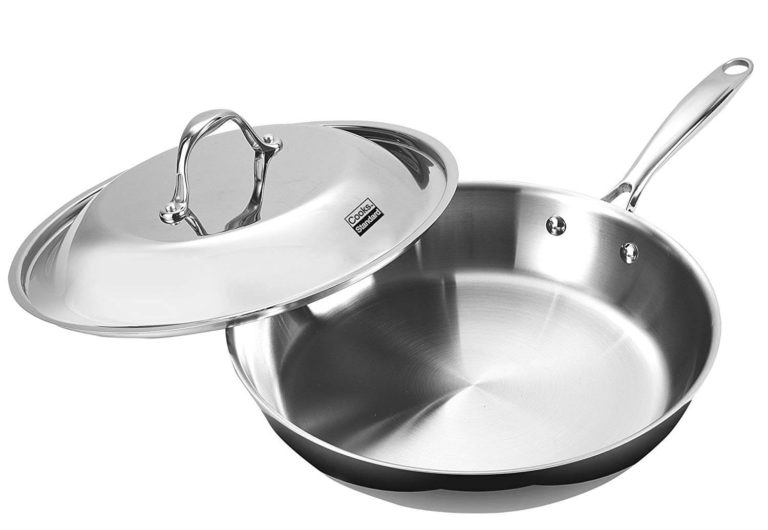
Cast Iron vs Stainless Steel [Which Is Better?]
The copper teapots classify in two types, one just like the iron teapot, large capacity, for boiling water or cooking tea; Another is the ordinary Moroccan Teapots, which made from copper, only for brewing. Compared with cast iron teapots, copper teapots have a brighter appearance and better thermal conductivity.
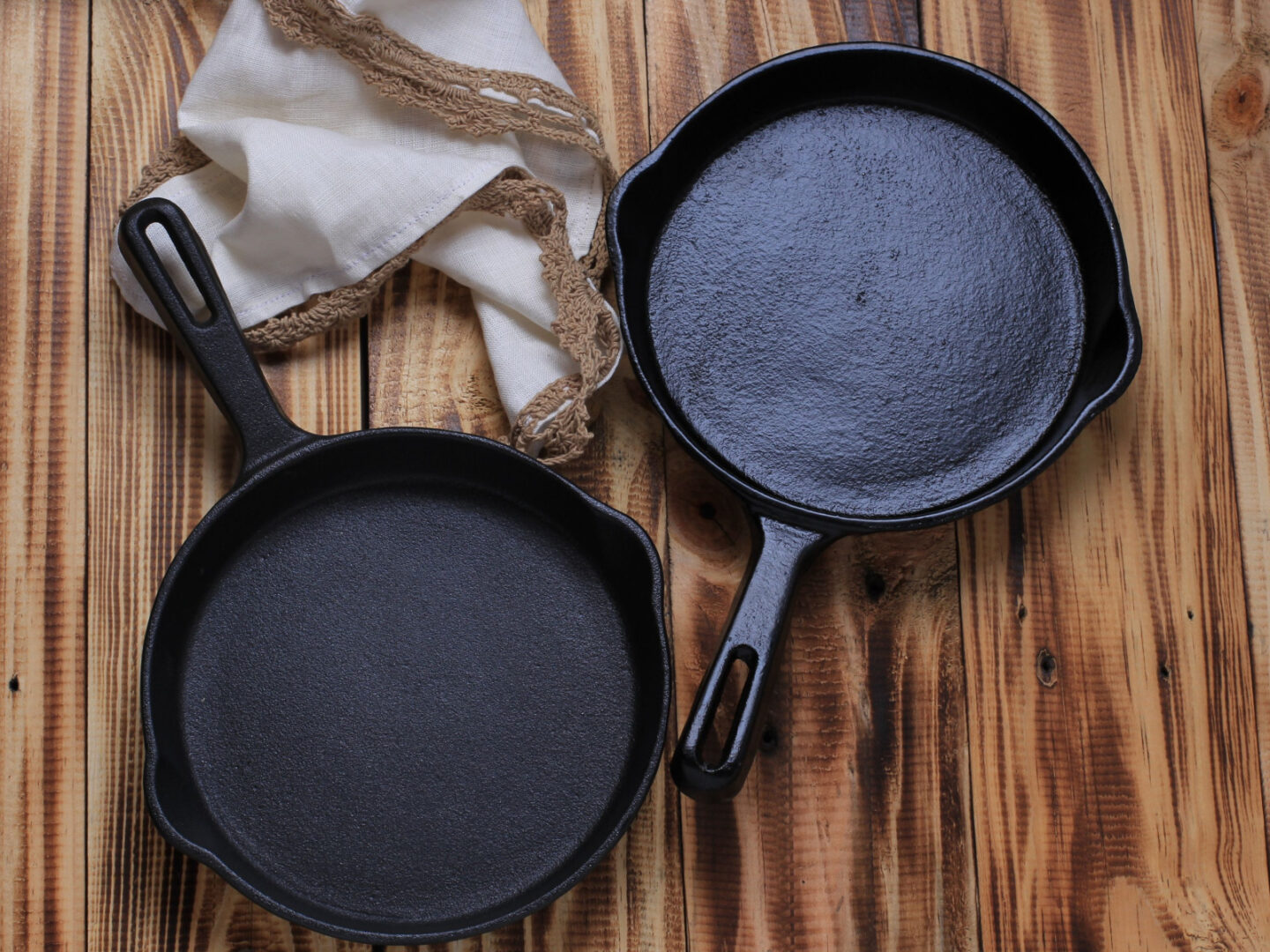
Cast Iron vs Enameled Cast Iron Cookware Tastylicious
Though they are easier to maintain than cast iron, ceramic pots can chip or break more easily. Small, delicate pots are often favored by connoisseurs for precise pours and good balance, but can look dainty and fragile to the uninitiated. But as clay is fired at high temperatures, silica inclusions align and becomes glass-like.
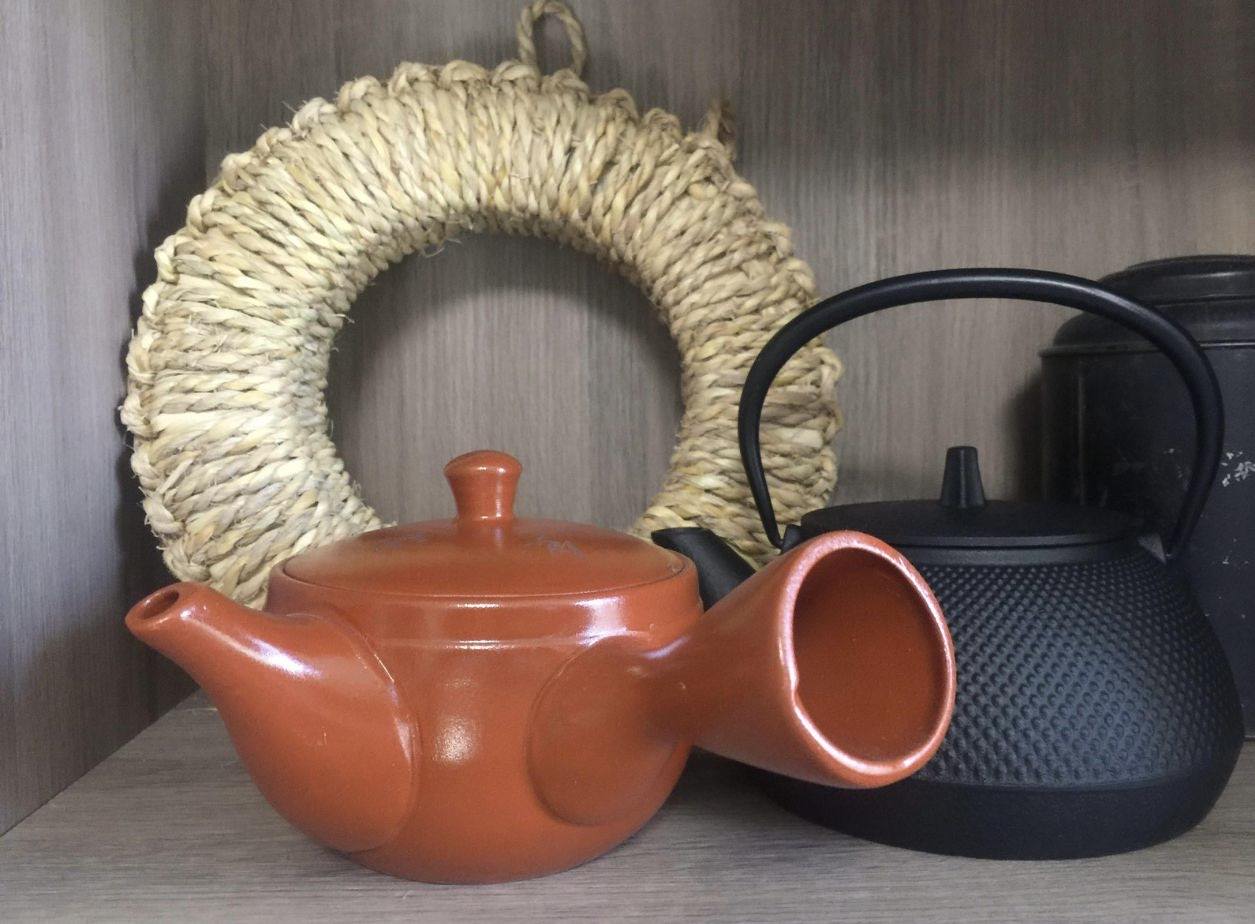
Cast Iron vs. Ceramic Teapot Which Is The Better Choice?
Cast Iron Teapots. Cast Iron teapots, such as our Prosperitea, are the most durable teapots on the market. Unlike porcelain and glass teapots, cast iron teapots can last for many years, generally making them the pricier choice. Brewing in these teapots provides the best benefits to consumers as the material enables heat to be distributed evenly.

The Ultimate Comparison Guide Between Cast Iron and Ceramic Coated Cast
Different types of teapots, such as stainless steel, glass, cast iron, clay, and ceramic, each have their unique characteristics that can influence the taste of your tea. For example, stainless steel teapots are known for their durability and quick heat-up time, making them ideal for fast brewing or multiple infusions.

The Ultimate Comparison Guide Between Cast Iron and Ceramic Coated Cast
Most high-quality ceramic pots will have an in-built strainer and spout. Ceramic pots are easier to maintain than a cast iron teapot. Most tea aficionados favor using ceramic teapots for precise pours and excellent balance. The difference between cast iron and the ceramic teapot is about heat capacity. Cast iron.

Cast Iron vs Ceramic Cookware Which One Is Right For You? Kitchenoa
On the other hand, ceramic teapots come in various types, including porous ceramics like Yixing clay and non-porous ceramics like stoneware and porcelain. Ceramic teapots are not only aesthetically pleasing but can also contribute to the flavor of the tea. Another option to consider is cast iron teapots.
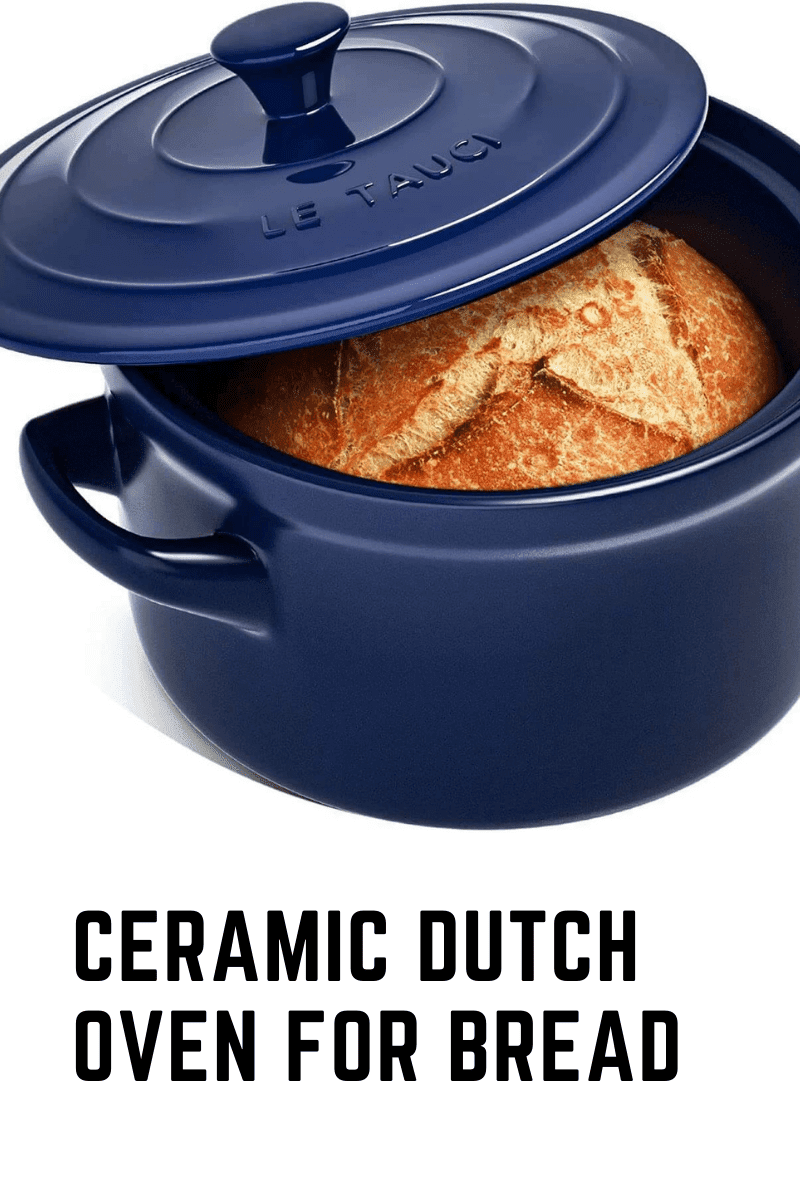
Cast Iron Vs Ceramic Dutch Oven 7 Major Differences
Cast iron vs. ceramic teapots: which one is best for you? Cast iron teapots and ceramic teapots are both great ways to brew tea. Which one you choose is ultimately a matter of personal preference. Cast iron pots: Have a distinctive aesthetic appeal; Retain heat well; Are durable and long-lasting; May be slightly more difficult to clean and care.

Cast Iron Vs Ceramic Cookware Which Is Better For You? Kitchenoa
Today, both cast iron teapots and cast iron kettles are called testubin. However, cast iron tea pots have an enamel coating and are used for brewing tea, not for boiling water, and very often they may serve decorative purposes better. 3. Ceramic teapots. There are many different ceramics teapots - porous ceramics, glazed ceramics, stoneware.
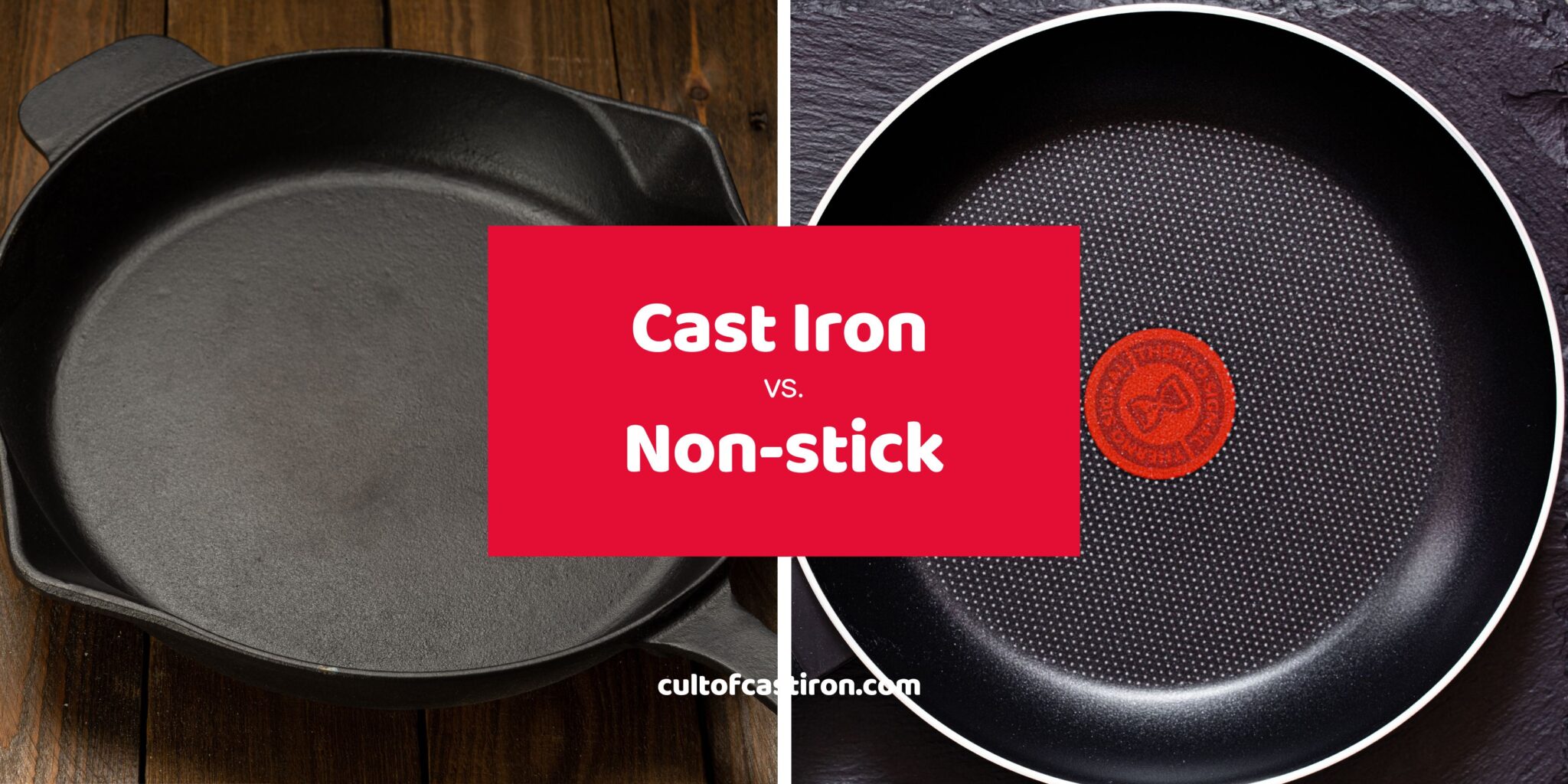
Cast Iron vs. Nonstick Which One Should Home Cooks Get? Cult of
Cast iron vs. ceramic teapot is one better than the other. You will learn the benefits and disadvantages of both. However, I will argue that cast iron teapots are the better choice for the average tea drinker. Cast iron teapots come in many styles and sizes, and they are non-porous, making them a perfect choice for everyday use.
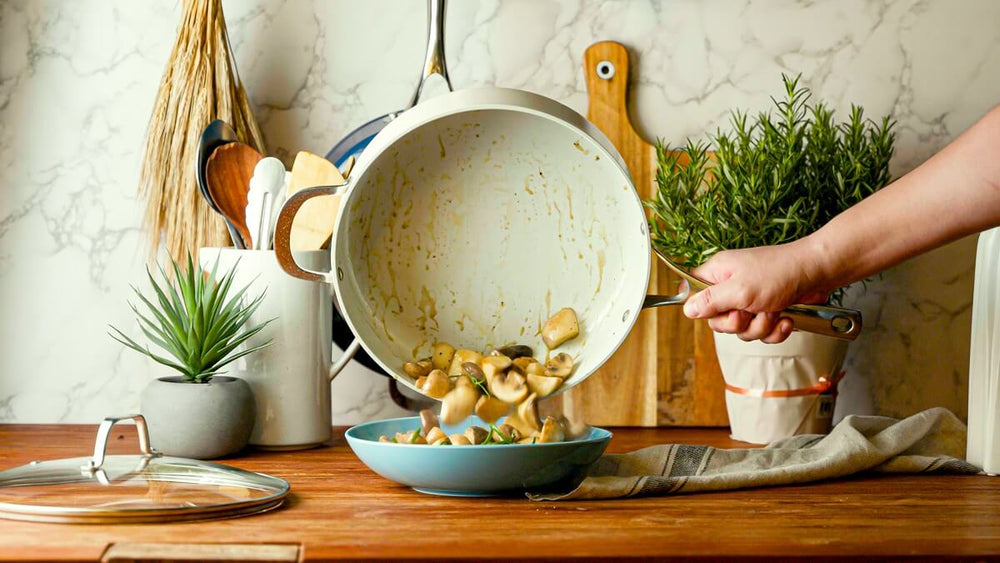
Cast Iron vs Ceramic Cookware Which One To Get?
Frieling 18/8 Stainless Steel Teapot with Infuser. $60 $45. Amazon. Made of 18/8 steel, the Frieling teapot's functionality and sleekness makes it great for everyday use. It has a long, micro.
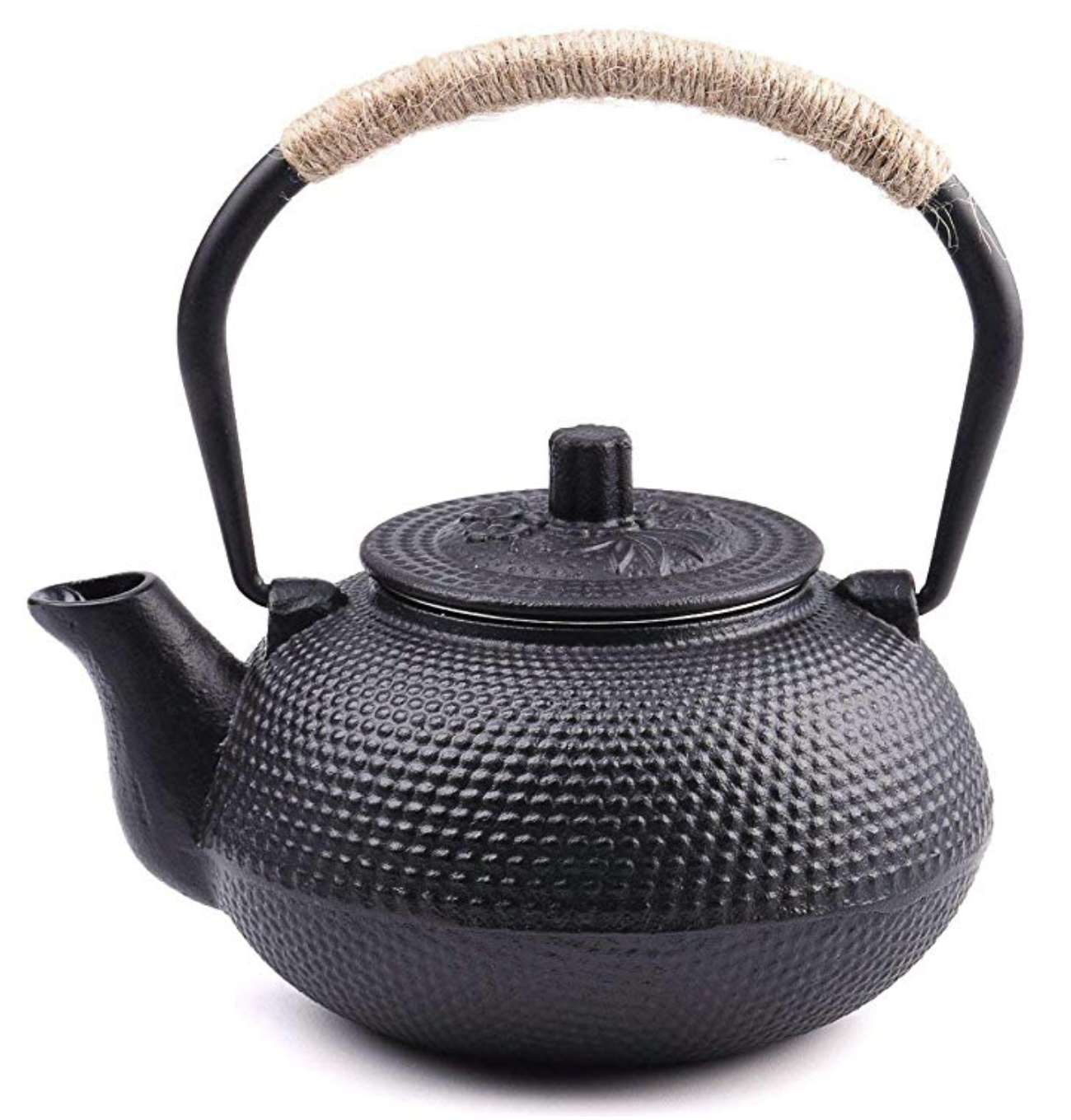
Cuisinart Tea Kettle Offers Online, Save 58 jlcatj.gob.mx
Ceramic teapots are widely lauded for their excellent heat retention, easiness to clean, and timeless aesthetic. Tealyra's Daze Ceramic Teapot has all these wonderful traits, plus it's available in seven colors to match any personality or kitchen décor.. Cast iron teapots are an outlier when it comes to cleaning. Owners should avoid.
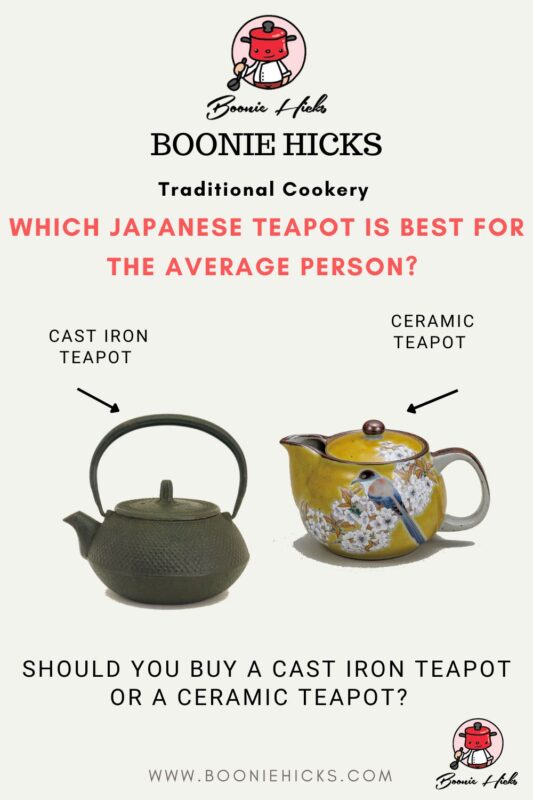
Cast Iron vs. Ceramic Teapot Which is the better choice?
Ceramic is better. The Japanese cast iron kettle, Tetsubin, is meant to be used as a kettle for boiling water rather than as a teapot. These days, you see these kettles sold and marketed as teapots, but this is just done for aesthetic purposes. It is possible to get equally good results with either. However cast iron is pretty but generally.

The Pros And Cons Of Cast Iron Vs Ceramic Tagines Euro Food Seattle
Preheat the teapot: Fill the teapot with hot water to warm it up. This helps maintain a consistent temperature during the brewing process. Swirl the water around, and then pour it out. Measure the tea: Use one teaspoon per 8-ounce cup of water for loose-leaf tea. Place the tea in a tea infuser or the teapot's built-in infuser basket.

Cast Iron vs Ceramic Cookware Which One Should You Invest In? Cook
Paracity Cast Iron Teapot. If you want a durable cast iron teapot, this option is a great choice. Its Japanese cast iron is among the finest on this list and provides both a long-lasting and attractive style. In addition, the ergonomic fold-down handle helps this option stand apart due to its ease of handling.
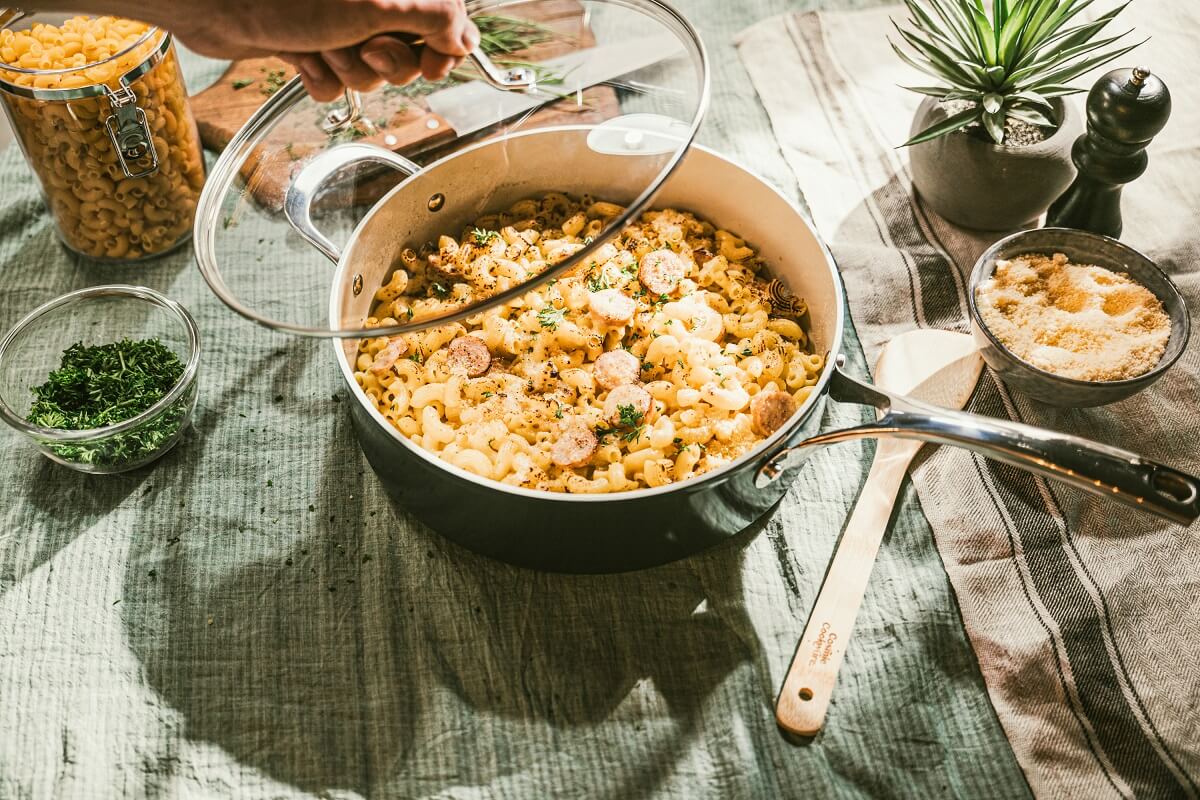
Stainless Steel vs Ceramic Cookware The Heat Is On
Cast Iron Teapots vs. Tetsubin Let's address the giant tea bush in the room. When looking for a cast iron teapot, you'll no doubt run into the term tetsubin alongside cast iron teapot.. Unlike teapots made of glass or ceramic, cast iron teapots will hold heat for a much longer length of time than teapots made from other materials. Of course.